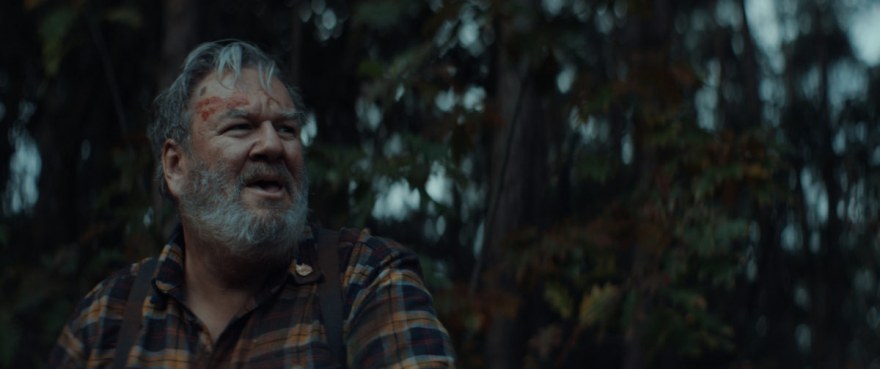Breakfast with Saint Hubert
An interview with Jules Comes, director of Saint Hubert
How did you work on image and light ?
Saint Hubert was meant to be a cinematographic experience from the first beginning. I’ve tried to create a world, an environment with aesthetic locations in nature and the right conditions of light. We’ve tried to use the camera in a kind of classical cinematic way, to let the beauty of nature come to its full strength. Our goal was to enlarge the aesthetic feeling of nature but also that of enclosure and violence.
Did you do research on Still-life during preparation ?
I did not study ‘still-life’ in particular. In preparation for the film, i’ve watched a lot of nature-documentaries of David Attenborough. I think there is nothing like it. The way he shoots nature, animals, plants and how he creates curiosity in his films, was a great inspiration in making Saint Hubert.
Why were you interested in the forest environment ?
I’ve been living in a great city for some years now. Brussels is beautiful, interesting and ugly at the same time. It is a city with many parks but also with some pollution and filth. When I have the time I try to get out of the city. I think it is a natural need for people that live in big cities. Always when I am in the forest, I experience some feelings of peace, a feeling of being at ease. The choice of making this film that is about nature, about the beauty of the forest, tells me how we get enclosed in our urban environment more and more. Maybe there is some kind of fear in me that says that I will be trapped in this urban cage for all my life.
What interested you in the regard of Saint Hubert: was it rather the relation to the imaginary, the legendary or rather the link with Christian belief?
I consider myself an atheist although I don’t exclude any form of life that stands high above us. I just don’t know. I don’t believe in any god or religion, but I envy people that can take so much power in believing in something. I wish I could have that same hold in my life. Religion fascinates me. When I discovered this old legend of Saint Hubertus of Liege I immediately fell in love with it. I transposed the story into the backstory of my main character who in his own way create a believable, his own solitary religion based on the old legend. Apparently, because of isolation, he made up his own rules in his territory. This becomes problematic when other people enter his world. In the film, I’ve tried to create a character with an unconditional sense of his religion but also a man that goes over boundaries defending them.
Do you like fantastic stories ?
Yes. I am not the kind of director that seeks for ultra-realistic settings or arenas. I think it is much more interesting to create your own rules and stories in a world that you create yourself.
What sort of freedom would you say the short format allows?
A short film is a very thankful medium in my opinion. As a filmmaker, you get 10 to 20 minutes to grab your audience. It has a few different rules then a feature film in that way, but for sure is not less interesting. I feel total freedom when I make short films. They cost less money, are faster to make, and something tells me that when you make a bad short film, it won’t hunt you for the rest of your life. I am up for my 5th and final short film in 2018.
If you’ve already been to Clermont-Ferrand, could you share with us an anecdote or story from the festival? If not, what are your expectations for this year?
I am very glad to be at the biggest short film festival in the world. For me, it is already a price to be at this festival. It is a great reward for hard effort and work of making Saint Hubert. I’m looking forward to meeting new filmmakers, professionals, and believers in cinema.
Saint Hubert is being show in International Competition I2.








